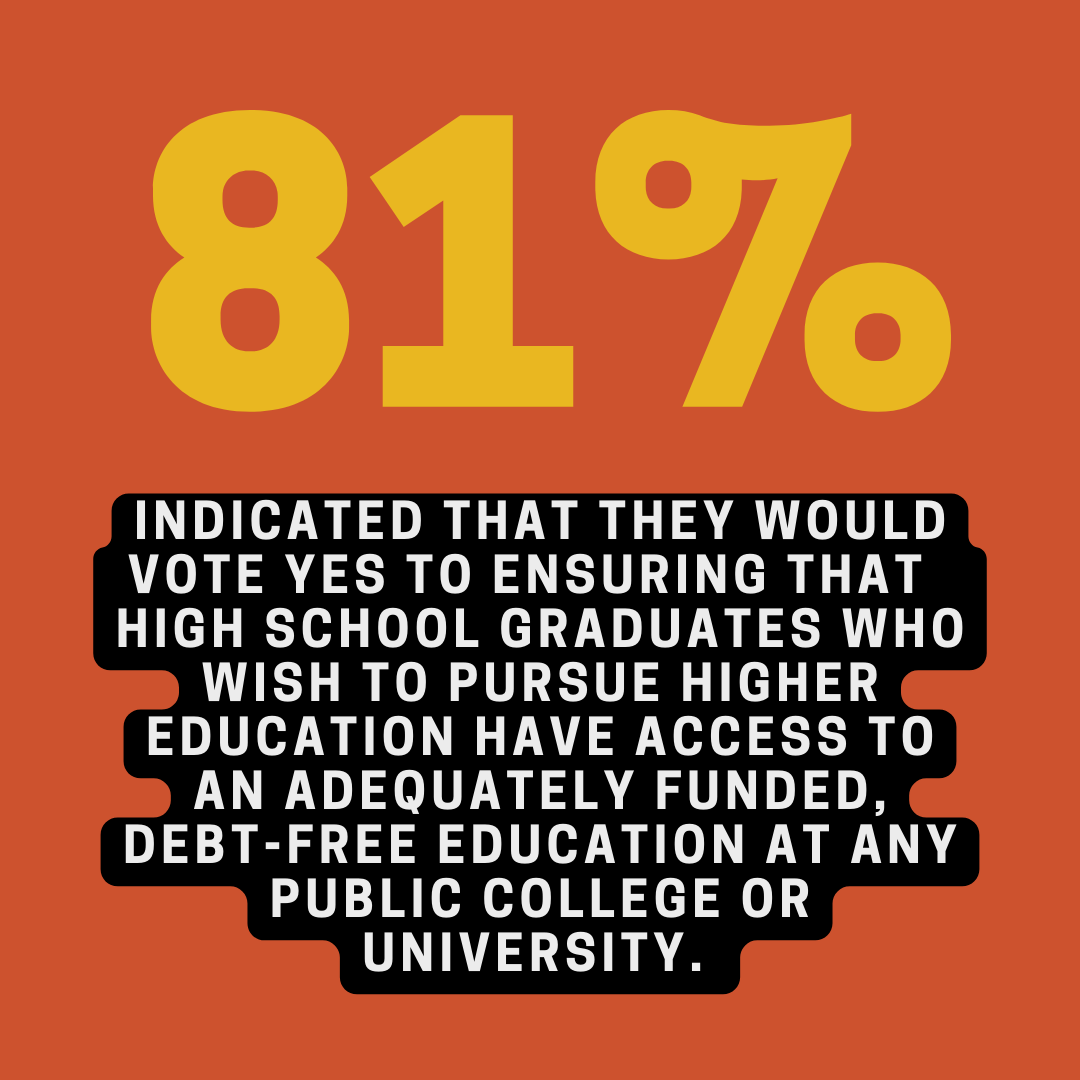New poll shows strong support for Thrive and Cherish Acts
New poll shows strong support for Thrive and Cherish Acts
Reforming high-stakes testing and offering debt-free higher ed is popular with Massachusetts registered voters
A new poll conducted by Echo Cove Research for the Massachusetts Teachers Association shows robust support for potential ballot questions aimed at reforming high-stakes testing and expanding Massachusetts students’ access to high-quality public higher education. The poll results bolster Echo Cove’s previous polling in February – which also found strong support for these elements of the Thrive and Cherish Acts– and which signals a public ready to support ballot initiatives on a wide range of issues related to educational equity.

Echo Cove conducted the poll via an online questionnaire from June 2-11, 2023, to 800 registered voters aged 21 and older. Eighty-one percent of participants indicated that they would vote ‘yes’ on a ballot measure ensuring that every person who lives in Massachusetts who has graduated from a state high school and wishes to pursue higher education has access to an adequately funded, debt-free education at any public college or university. If passed, the Cherish Act would provide affordable public higher education for the state’s students.
“On the heels of the U.S. Supreme court’s abysmal decision to gut affirmative action, it’s more important than ever that we stand up for fair and equal access to public higher education in Massachusetts,” said MTA President Max Page. “The voters have spoken: Residents want and need access to high quality, debt-free public higher education. Our young people should not have to go into massive debt or come from wealthy backgrounds to pursue the degrees that are required for so many jobs.”

Seventy-three percent of respondents said they would support eliminating the graduation requirement tied to the MCAS. In its place, schools would be required to certify students for graduation if they demonstrate a mastery of skills and knowledge in line with state standards. Massachusetts is one of only eight states that still ties a standardized test to a high school graduation requirement.
“Time and time again, educators and parents have voiced concern for the high-stakes aspects of the MCAS exam at a time when our young people are facing an unprecedented mental health crisis,” said MTA Vice President Deb McCarthy, who was a fifth-grade teacher for more than 25 years. “Standardized testing has failed to do what its proponents claimed its purpose was -- close the achievement gaps we see between white students and students of color and between students from districts with well-funded schools and districts with minimally funded schools. The graduation requirement tied to the MCAS disproportionately impacts BIPOC and low-income communities, and amps up the pressure on all young people in our state. It’s time for state officials to rethink our approach to making sure that all students are receiving a holistic, nurturing education that prepares them for a fulfilling life.”
Other potential ballot questions related to current legislation also showed broad public support:
- Eighty percent of participants said they would support a ballot measure requiring the state to establish a commission to create a new form of standardized assessment to replace the MCAS.
- Sixty-six percent of respondents said they would support educators having the right to strike.
- Fifty-nine percent of respondents said they would support ending the state’s system that can place schools and districts in receivership.
- Respondents also indicated they had an appetite for having a variety of these questions on the ballot, with 79 percent supporting the statement: “This is an exciting group of changes that we need in Massachusetts now. Together, they will help working families, increase access to college and improve public education.”